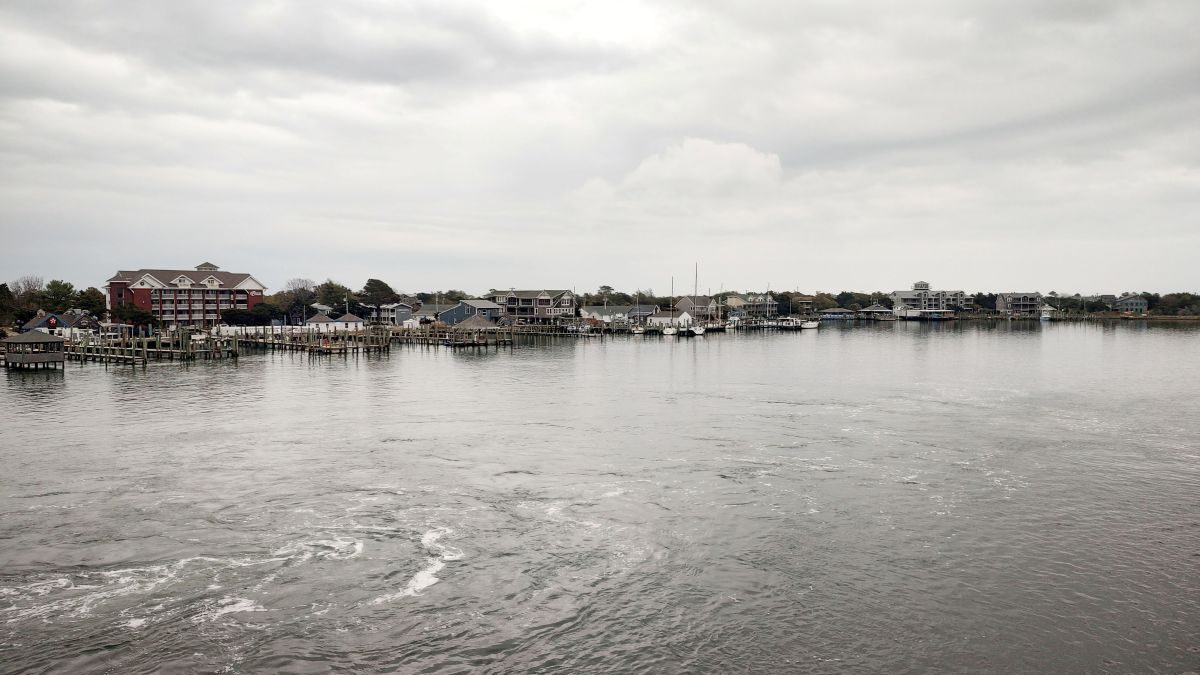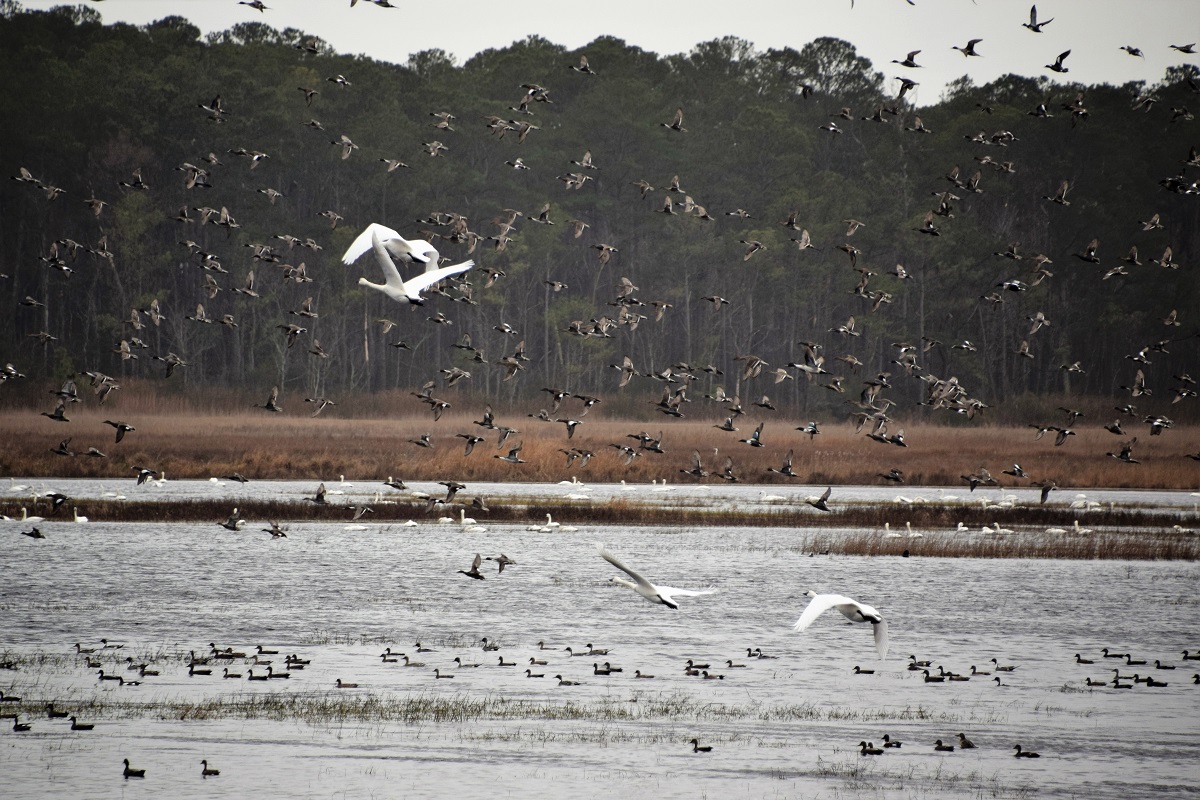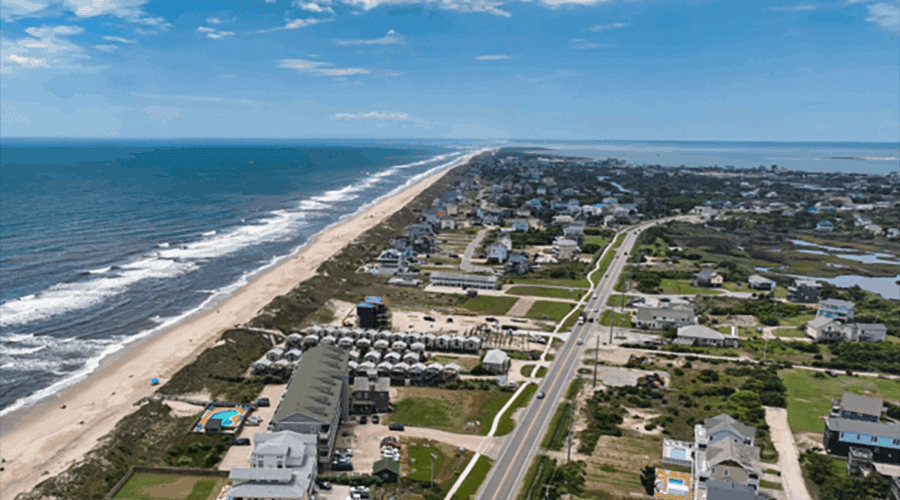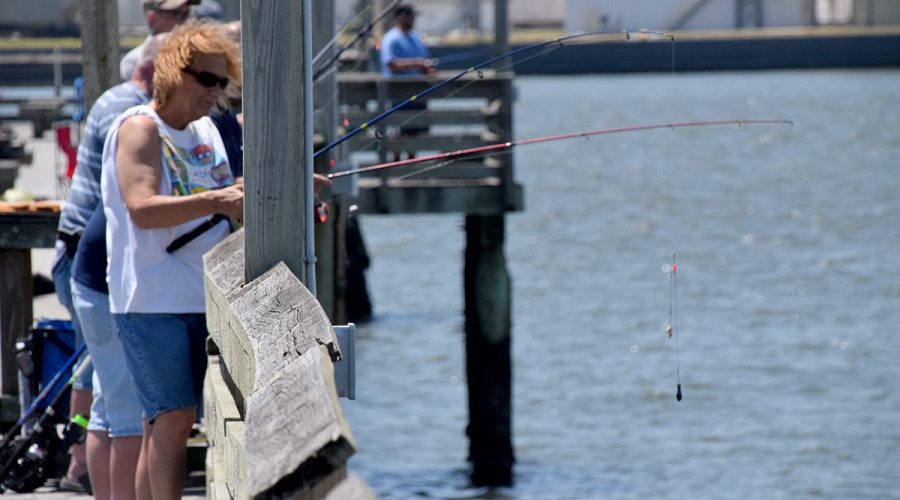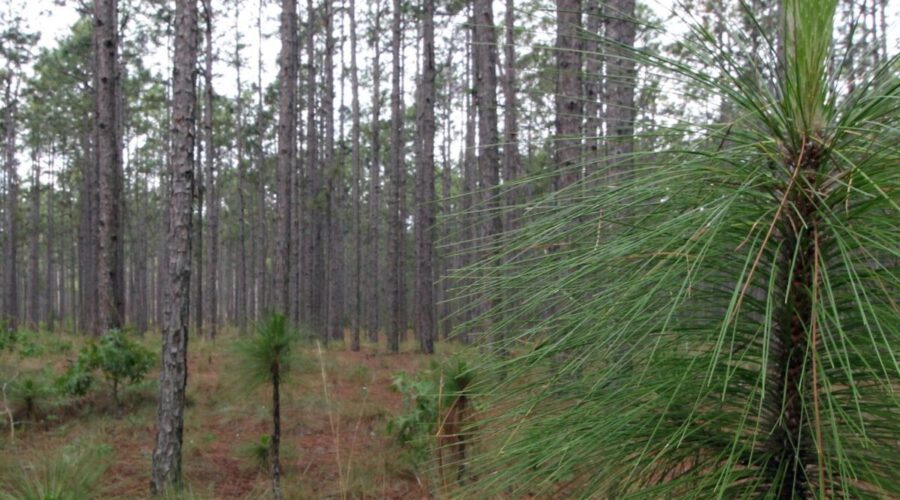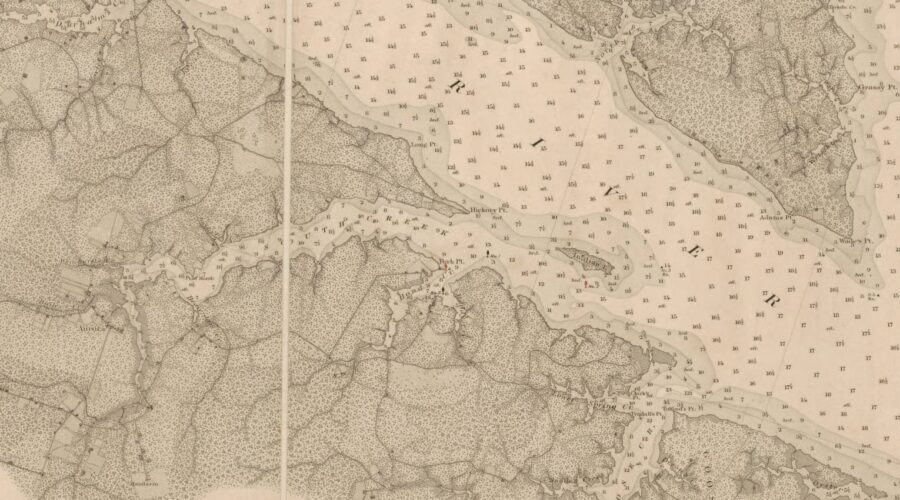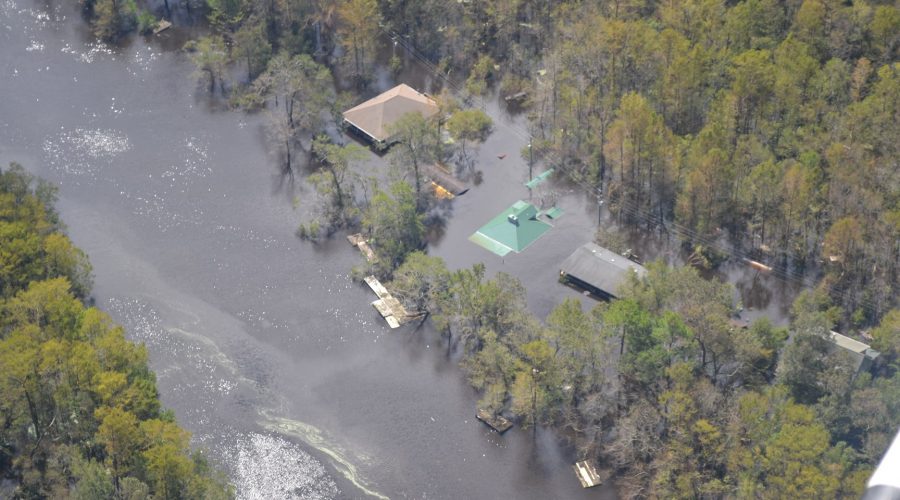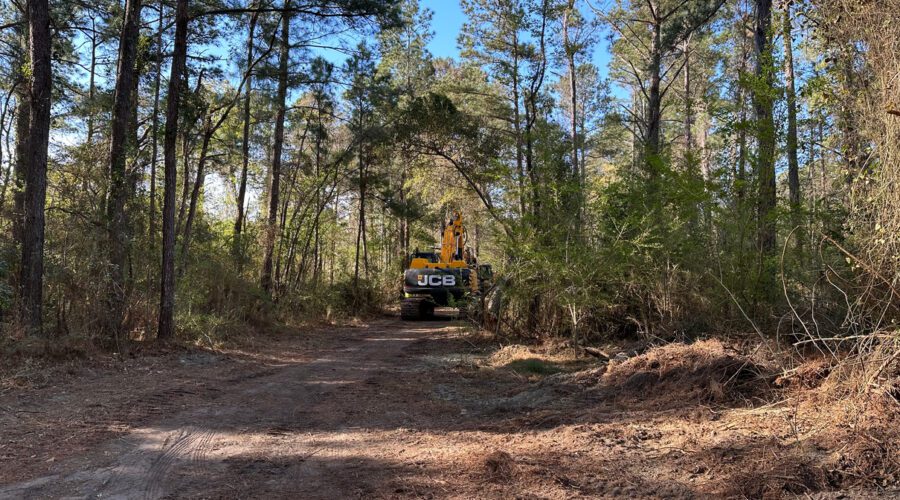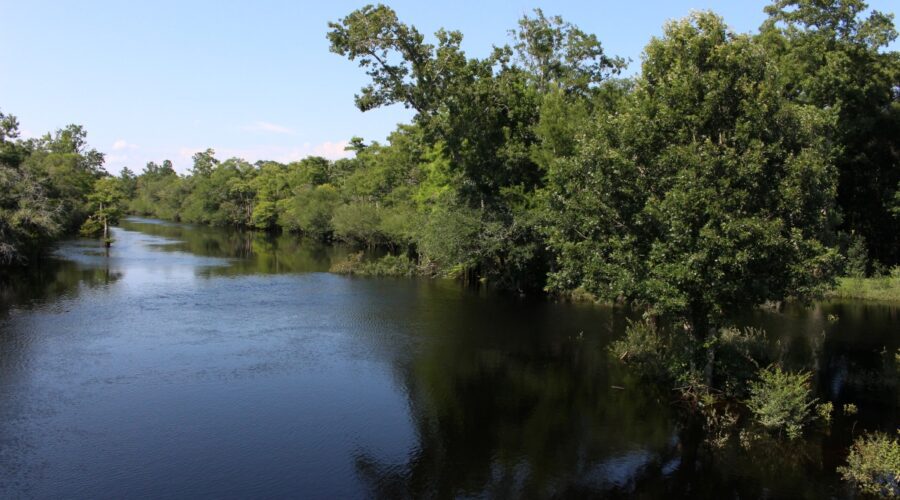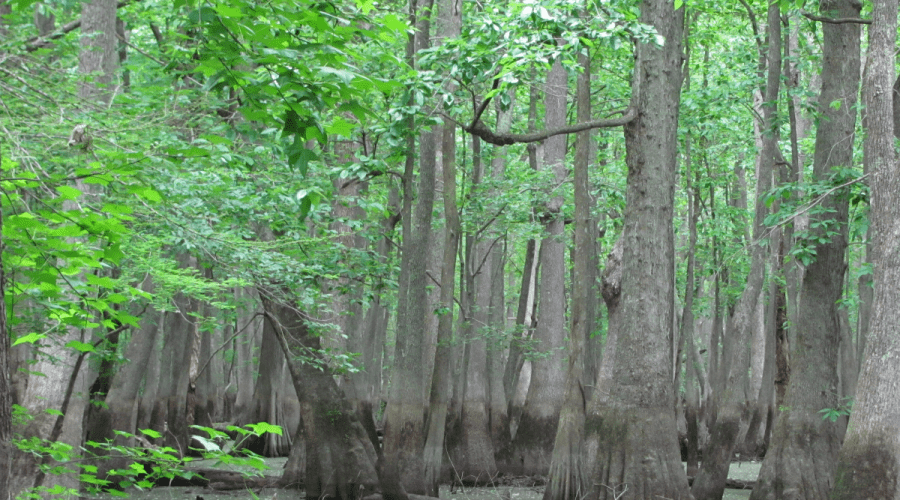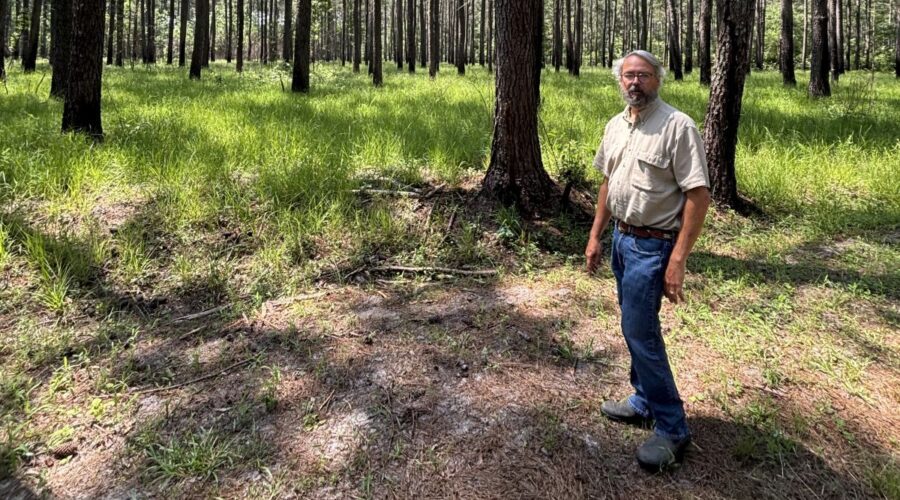“Language and Life on Ocracoke: The Living History of the Brogue” explores the isolated village’s once-prominent dialect now only spoken by a few hundred on the island.
Featured
Judge blocks pilot Lake Mattamuskeet algaecide application
A federal court decision Wednesday blocks the U.S. Fish and Wildlife Service from using a potentially harmful algaecide at Mattamuskeet National Wildlife Refuge, a compound that environmental groups argued would endanger the waterfowl the refuge is supposed to protect.
Karen Amspacher fights for Down East, brushes off praise
When Gov. Josh Stein inducted the Core Sound Waterfowl Museum Director and nine others June 25 into the Order of the Long Leaf Pine, the highest civilian honor in the state, Amspacher didn’t tell a soul.
Hatteras Village, long sparsely inhabited, retains quiet charm
Historic Hatteras Village is a popular destination for tourists and North Carolinians alike, yet its residents and the National Park Service help to maintain its adaptive, peaceful character.
Report: State needs more fisheries scientists to meet goals
The mandated study of North Carolina’s fisheries management practices finds that the state, despite increasingly intense management measures, is failing to protect and enhance coastal fisheries, and it includes no recommendation on trawling.
The Longleaf Alliance seeks areas to harvest pine cone crops
Because of the anticipated seed shortage that comes with a low estimate of pine cone crops for the third consecutive year, the nonprofit Longleaf Alliance is scouting for potential low-density stands of mature longleaf pines to harvest seeds in the fall.
Our Coast: Remembering Betty Town
Historian David Cecelski has “devoted a fair bit” of historical research to the people of Betty Town, how their land was taken, and how the community’s people were driven out of their homes to make room for the new town of Aurora, but there is much he doesn’t know.
UNC study: Repeat flooding more widespread than thought
University of North Carolina Chapel Hill researchers used anonymous, address-level National Flood Insurance Program records and observational damage to create maps of 78 floods that three-quarters of the state experienced over 25 years to determine which buildings experienced flooding and how often.
Enjoy that bountiful harvest long after growing season ends
You worked hard in the garden — or you supported a nearby farmstand — and there are ways, many rooted in tradition, to savor those fresh tastes all year long.
Work at Navassa Kerr-McGee site to take longer than planned
Crews have found “an extensive amount” of debris, including unanticipated contamination, meaning more cleanup time is needed for a 16-acre unit of the federal Superfund site long home to a wood-treatment operation.
Water finds your weakness: Louisiana’s lessons for Down East
Former Coastal Review editor Frank Tursi recently joined Core Sound Museum Director Karen Amspacher and others on a trip to start a conversation with those who live where levees gave way and homes flooded during Hurricane Katrina 20 years ago.
Go for glamour, but also be prepared to catch those ‘other’ fish
Glory species such as speckled trout, red drum, flounder and king mackerel are what nearly every saltwater angler loves to target, but often you’ll have to deal with an unwanted, sometimes dangerous catch.
How coastal Carolina shaped 20th-century poet AR Ammons
A.R. Ammons, the heralded, mid-20th century poet was known as “Archie” during his formative years working the family farm in Columbus County.
Federal cuts lead to unease for state’s wildlife refuges
Amid dramatic funding cuts, leaders of the nonprofits that support national wildlife refuges in the northeastern part of the state fear what’s ahead for these protected lands.
Pender landowner on mission to conserve hundreds of acres
Clint North has registered 1,988 acres in Pender County with North Carolina’s Natural Heritage Program, one of only three property owners in the state to register 1,000 acres or more with the state-managed conservation effort.
Ready or not? Know when it’s harvest time in your garden
Many, but not all, above-ground garden goodies give obvious signs of ripeness, still others give signals too, if you know what to notice.

